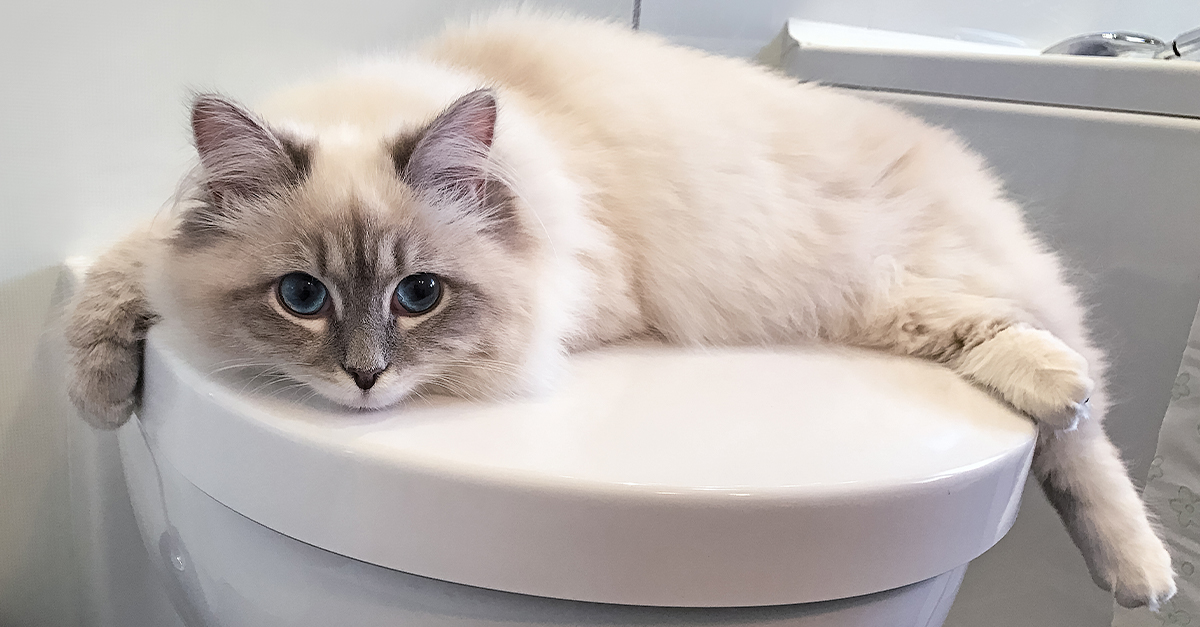Avoid Clogs and Damage: Never Flush Cat Poop Down Your Toilet - Expert Insights
Avoid Clogs and Damage: Never Flush Cat Poop Down Your Toilet - Expert Insights
Blog Article
Listed here in the next paragraph you will discover some sensible material when it comes to How to Dispose of Cat Poop and Litter Without Plastic Bags.

Intro
As pet cat owners, it's necessary to be mindful of how we deal with our feline buddies' waste. While it may appear practical to flush cat poop down the commode, this method can have detrimental effects for both the atmosphere and human health.
Alternatives to Flushing
The good news is, there are much safer and more accountable ways to take care of feline poop. Think about the adhering to choices:
1. Scoop and Dispose in Trash
The most typical technique of taking care of cat poop is to scoop it into a biodegradable bag and throw it in the trash. Make sure to utilize a dedicated litter inside story and dispose of the waste without delay.
2. Use Biodegradable Litter
Go with eco-friendly pet cat trash made from products such as corn or wheat. These litters are eco-friendly and can be securely taken care of in the garbage.
3. Bury in the Yard
If you have a backyard, think about hiding pet cat waste in an assigned area far from veggie yards and water sources. Make sure to dig deep enough to avoid contamination of groundwater.
4. Install a Pet Waste Disposal System
Buy a pet waste disposal system specifically made for feline waste. These systems utilize enzymes to break down the waste, minimizing smell and ecological effect.
Health Risks
Along with environmental problems, flushing pet cat waste can likewise pose health and wellness threats to people. Pet cat feces may consist of Toxoplasma gondii, a bloodsucker that can trigger toxoplasmosis-- a possibly extreme disease, specifically for expectant women and individuals with damaged body immune systems.
Environmental Impact
Flushing cat poop introduces unsafe pathogens and parasites into the water, posturing a substantial threat to marine ecological communities. These pollutants can adversely influence aquatic life and concession water high quality.
Conclusion
Accountable family pet ownership extends past giving food and sanctuary-- it also involves correct waste monitoring. By refraining from purging feline poop down the toilet and going with alternate disposal methods, we can lessen our ecological impact and protect human wellness.
Why You Should Never Flush Cat Poop Down the Toilet
A rose by any other name might smell as sweet, but not all poop is created equal. Toilets, and our sewage systems, are designed for human excrement, not animal waste. It might seem like it couldn’t hurt to toss cat feces into the loo, but it’s not a good idea to flush cat poop in the toilet.
First and foremost, assuming your cat uses a litter box, any waste is going to have litter on it. And even the smallest amount of litter can wreak havoc on plumbing.
Over time, small amounts build up, filling up your septic system. Most litter sold today is clumping; it is made from a type of clay that hardens when it gets wet. Ever tried to scrape old clumps from the bottom of a litter box? You know just how cement-hard it can get!
Now imagine just a small clump of that stuck in your pipes. A simple de-clogger like Drano isn’t going to cut it. And that means it’s going to cost you big time to fix it.
Parasitic Contamination
Believe it or not, your healthy kitty may be harboring a nasty parasite. Only cats excrete Toxoplasma in their feces. Yet it rarely causes serious health issues in the cats that are infected. Most people will be fine too if infected. Only pregnant women and people with compromised immune systems are at risk. (If you’ve ever heard how women who are expecting are excused from litter cleaning duty, Toxoplasma is why.)
But other animals may have a problem if infected with the parasite. And human water treatment systems aren’t designed to handle it. As a result, the systems don’t remove the parasite before discharging wastewater into local waterways. Fish, shellfish, and other marine life — otters in particular — are susceptible to toxoplasma. If exposed, most will end up with brain damage and many will die.
Depending on the species of fish, they may end up on someone’s fish hook and, ultimately on someone’s dinner plate. If that someone has a chronic illness, they’re at risk.
Skip the Toilet Training
We know there are folks out there who like to toilet train their cats. And we give them props, it takes a lot of work. But thanks to the toxoplasma, it’s not a good idea.

As a devoted person who reads about Can You Flush Cat Poo or Litter Down the Toilet?, I was thinking sharing that portion was a great idea. Kindly take a moment to promote this article if you enjoyed it. I recognize the value of reading our article about How to Dispose of Cat Poop and Litter Without Plastic Bags.
Click Here To Find Out More Report this page